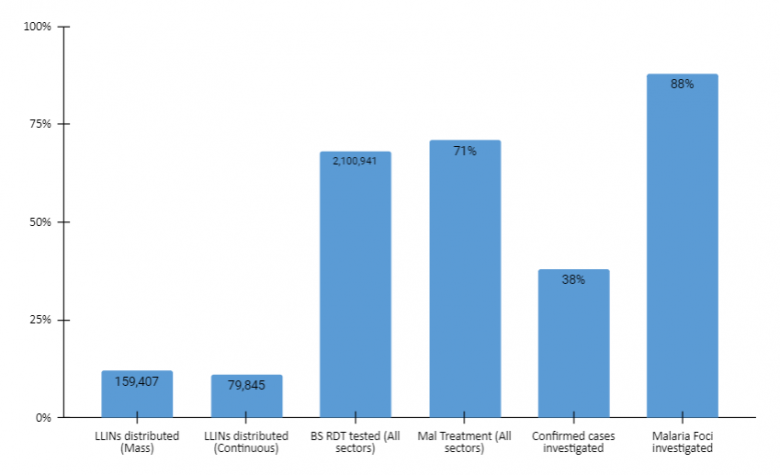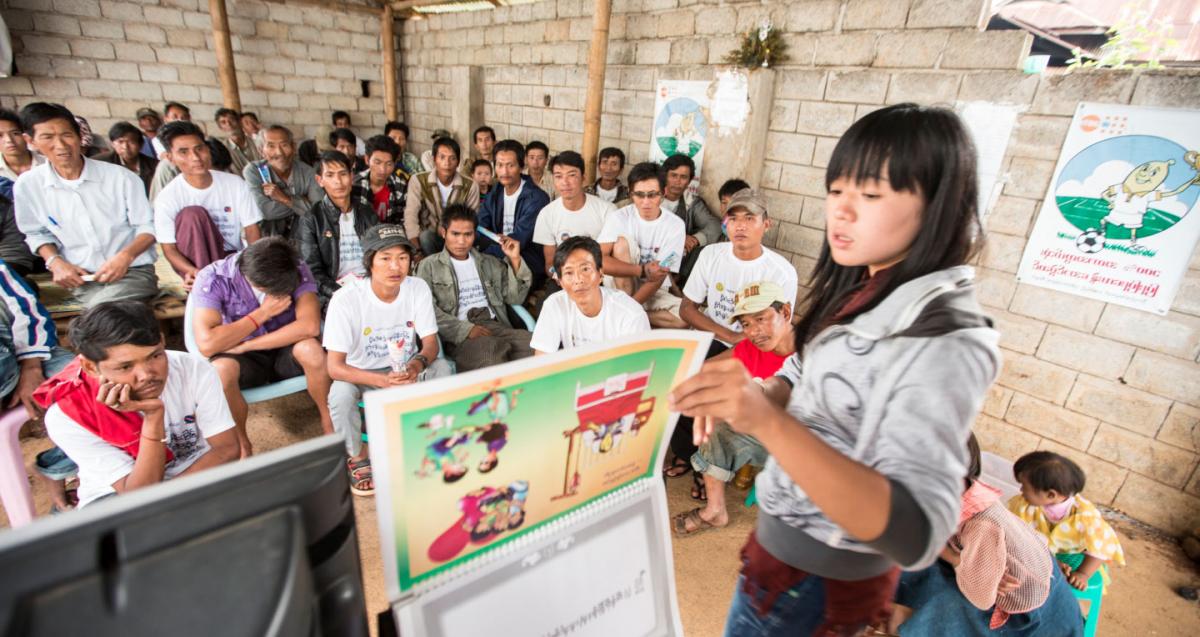
In 2022, PR-UNOPS and its implementing partners continued to work hard to preserve the continuation of essential malaria services while undertaking COVID-19 infection control measures so that the interventions were ensured not to be interrupted.
The malaria grant supported the continuous distribution of 79,845 (11% of the target) long-lasting insecticidal bed nets (LLINs) in 2022. Moreover, 159,407 LLINs (12% of the target) were distributed through mass distribution to the high-risk populations who are residing in areas where there is high malaria transmission.
During the year, about 2.1 million RDT tests (68% of the target) were conducted in public health facilities, in the community, and in the private sector. Furthermore, 71% of positive cases were treated according to the national treatment guidelines at public health facilities, community, and private sectors.
There was a delay in implementing malaria elimination activities as planned at the field level due to political unrest and armed conflicts. About 38% of the cases from the elimination area were investigated and classified in 2022. Foci investigation and response activities were limited. However, certain response activities such as Reactive case detection and case management, and LLIN distribution were conducted to mitigate the risk of an outbreak.
The key commodities such as malaria Rapid Diagnostic Tests (RDTs), Artemisinin-based combination therapy (ACTs), Chloroquine, and Primaquine were stocked up for the Integrated Community Malaria Volunteers (ICMVs) with three to six months buffer and field offices with two to three months’ buffer to enable ICMVs to have enough stocks in hand, during the political unrest. In addition, mobile phone bills were provided to the ICMVs so that the case-based reporting was not interrupted due to internet connectivity issues.
Moreover, surgical masks, gloves, and hand sanitizers were procured and distributed for the safety of healthcare workers. ICMVs were instructed to wear masks and gloves while conducting RDT tests and to keep physical distancing while traveling to malaria-endemic areas.


